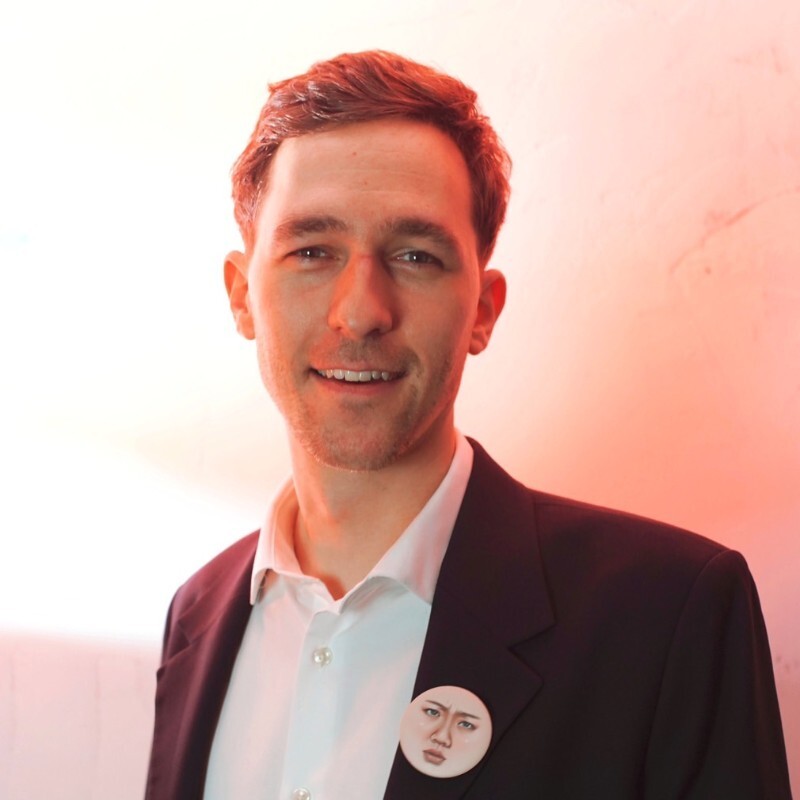Advice from a CEO that is experinced in incubating and helping startups come up with solutions and the best ideas.
Introduction
I am Kas (Kastytis Kemezys), currently a CEO of Whatnot Startup Studio since last year. I studied business administration; business management and economics.
What Do You Find Intriguing About the Tech Industry?
I started off at a beverage company and created products. When I moved to the UK, I was introduced to food tech where I got to know the concept of implementing “technology into products.” At this point, I would consider myself believing in the fact that people can use technology to solve world issues. For instance, from hunger to deforestation, providing solutions to urban nutritions and maximizing yields. This was my first lesson that made me know that technology is inseparable from any industry.
Your Goals in Helping Startups to Implement Technology
This is also the reason why Whatnot cannot really narrow down on one technology for one industry because technology just has to be part of whatever you are building. Technology has to be like hygiene where you have to maintain it everyday. You don’t build technology for the sake of technology but you use what’s available in technology to make something that is useful for today and tomorrow. It can be something that’s cost effective, more convenient or something that listens to your customer better.
We view technology as an instrumental part in solving problems. But we don’t look at technology as just for the sake of building it. It’s not our role.
Difficulties in Being a Leader of Leaders
The Communication. It’s hard because it involves strategics. One idea can take up to 6 months to carry out and can sometimes take more than that. As startups, it is okay to fail and try new ideas, but as a studio, we cannot afford to do that often. We are a place where we help you to filter out and get the best solutions. Specifically for a studio CEO, it’s how creative enough you can be to test the ideas as fast as possible to prove or deny your hypothesis. But it is also how you communicate with your team to keep up the pace especially with different people from different nationalities.
Also the concept of “Sunk cost fallacy”.As you keep investing in something whether it’s your resources, your time or your passion, people usually keep on doing it even if it is failing, making you spend even more effort on it. This becomes a big problem when you spend too much time and resources on a sinking boat.
As a CEO, we need to know when to cut off even though everyone wants to continue just because it’s a natural human thing to do. And know to suggest another direction where we should rather be investing our energies in.
The Beauty of “Diversity”
It’s a way where we can create openness and encourage creativity. It has been proven that openness is a character trait that makes people more creative and are more capable of coming up with solutions that other cultures may not. Openness is cultivated by having different people with different personalities around.
For Whatnot, it would have been less effective if we had similar people from the same countries, same culture or same background in the same space.
What are the DNAs of a Perfect Team?
People with passion, energy and are not afraid to speak up. We Had people that tend to be a bit more quiet. It was a little bit hard when it came to issue solving. Rather than knowing it the next day, we would like to know and solve it within the end of the day. It is really hard to know what;s going inside someone’s head. We try to promote ourselves by being proactive; saying that we should see things differently, that they are uncomfortable and want change.
As a CEO, we should promote freedom to encourage self-expression. At Whatnot we don’t have set working hours,or strictly counting the amount of holidays we should be taking. Mental health of the team is extremely important and we should be more goal-oriented. It doesn’t matter how we get there or how we get there; there is no correct way of approaching our goals.
There are a million ways to solve the problem but we can try only one at a time. Even if that one fails, it doesn’t mean that the world has ended.
It doesn’t matter if you took the longer path or failed the other ways, reaching your goals at your own pace and expressing your ideas should be the environment a team should maintain.
Where Do You Expect Startup Studios to be in 5-10 Years?
It is possible that in the future, we might narrow the industries a bit more or even deviate from different types of products. We don’t know exactly, and nobody would. But what we will know is people will have more freedom to work their own ways. They can even study on their own now with the help of the internet. We cannot force them back into the old ways of work.
As for whatnot as a studio, Freedom will be more promoted. To be the most productive version of yourself, the way you really appreciate and feel proud about what you do. Startup studios are designed around that fact; enabling people to try different things and to see what you are capable of.
Ownership. In a traditional corporation you rarely have ownership. Studios will establish a model that has more encouragement on people to be responsible for their success and to own shares of that concept. Minority ownership that can eventually become assets. It’s a really bright future for business models like ours, as long as startups are willing to have us.


